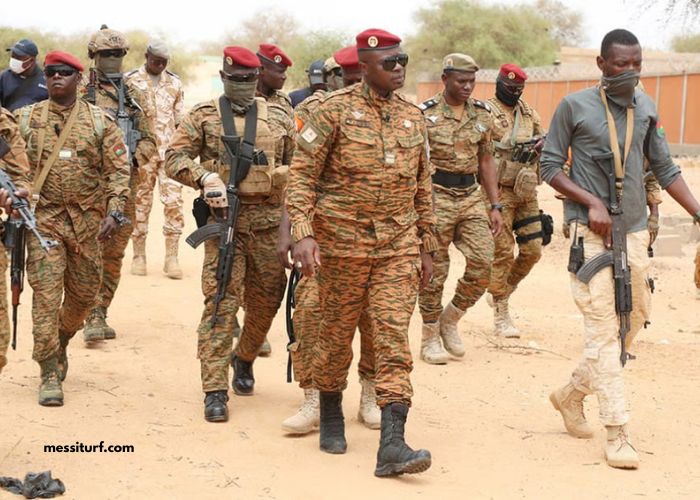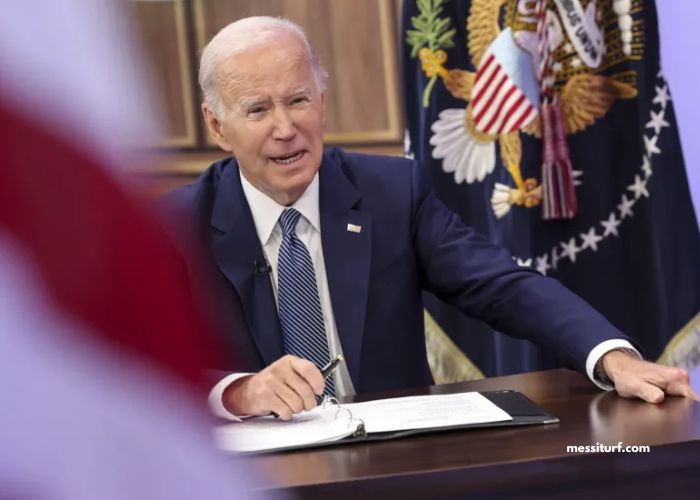Actualité Au Burkina Faso Aujourd’hui provides an essential overview of the current situation in Burkina Faso, encompassing political changes, security developments, and economic initiatives. As of April 2025, the nation is navigating significant transitions, including governmental shifts and efforts to address security challenges.
In December 2024, Rimtalba Jean Emmanuel Ouédraogo was appointed as the new Prime Minister of Burkina Faso, succeeding Apollinaire J. Kyélem de Tambèla. Ouédraogo, a former journalist and government spokesperson, has emphasized the importance of combating terrorism and fostering national development. His appointment marks a pivotal moment in the country’s leadership.
Concurrently, President Ibrahim Traoré has been actively involved in reshaping the nation’s political landscape. In December 2024, he dissolved the previous government and appointed a new leadership team. This move aligns with the government’s broader strategy to address national security concerns and promote economic growth.
On the international front, Burkina Faso has taken steps to redefine its foreign relations. In March 2025, the country announced its decision to withdraw from the Organisation Internationale de la Francophonie (OIF), citing concerns over the organization’s political influence. This decision reflects Burkina Faso’s desire to assert greater sovereignty in its international engagements.
Domestically, the government is focusing on infrastructure development and public services. Efforts are underway to enhance access to potable water, particularly during the hot season, and to support local industries. Initiatives like the promotion of local tomato paste production in Bobo-Dioulasso aim to boost the economy and reduce reliance on imports.
As the situation in Burkina Faso continues to evolve, staying updated on the Actualité Au Burkina Faso Aujourd’hui is crucial for understanding the nation’s trajectory. The government’s commitment to reform and development, coupled with its strategic international decisions, will likely shape the country’s future in the coming years.
What Are the Recent Political Developments in Burkina Faso?
Recent political developments in Burkina Faso have been marked by significant leadership changes and strategic decisions. In December 2024, President Ibrahim Traoré appointed Rimtalba Jean Emmanuel Ouédraogo as the new Prime Minister, signaling a shift in the government’s approach to national issues. Ouédraogo’s appointment was part of a broader cabinet reshuffle aimed at addressing pressing challenges, including security concerns and economic development.
The new government has prioritized combating terrorism and enhancing national stability. Efforts are being made to strengthen security forces and improve intelligence capabilities to counter extremist threats effectively. Additionally, the administration is focusing on promoting economic growth through infrastructure development and support for local industries.
How Is Burkina Faso Addressing Security Challenges?
Burkina Faso continues to face significant security challenges due to the presence of armed groups in various regions. The government has implemented several measures to address these threats, including military operations aimed at dismantling extremist networks and securing vulnerable areas. Collaboration with international partners has been enhanced to bolster counterterrorism efforts and ensure regional stability.
Community engagement is also a key component of the security strategy. Initiatives aimed at building trust between security forces and local populations are being promoted to facilitate information sharing and cooperation. These efforts are essential for creating a sustainable security environment and preventing the spread of extremist ideologies.
What Economic Initiatives Are Being Implemented?
Economic initiatives in Burkina Faso are focused on fostering self-reliance and stimulating growth. The government is investing in infrastructure projects to improve transportation networks and access to essential services. Programs aimed at supporting local agriculture and industries are being introduced to boost domestic production and reduce dependence on imports.
A notable example is the promotion of local tomato paste production in Bobo-Dioulasso, which aims to support local farmers and create jobs. Such initiatives are expected to contribute to economic diversification and resilience, positioning Burkina Faso for sustainable development in the long term.
How Is Burkina Faso Navigating Its Foreign Relations?
Burkina Faso’s foreign relations have undergone significant changes in recent months. In March 2025, the country announced its decision to withdraw from the Organisation Internationale de la Francophonie (OIF), citing concerns over the organization’s political influence. This move reflects Burkina Faso’s desire to assert greater sovereignty in its international engagements and pursue foreign policies aligned with its national interests.
The government is also exploring new partnerships and strengthening ties with regional organizations. Efforts are being made to enhance cooperation with neighboring countries and regional blocs to address common challenges, including security threats and economic development. These strategic decisions are aimed at positioning Burkina Faso as a more independent and influential actor on the international stage.
What Social Programs Are Being Implemented?
Social programs in Burkina Faso are being implemented to improve the well-being of citizens and address pressing societal issues. The government is focusing on enhancing access to education, healthcare, and social services, particularly in underserved regions. Initiatives aimed at promoting gender equality and empowering marginalized communities are also being introduced to foster inclusive development.
In response to the hot season, the Office National de l’Eau et de l’Assainissement (ONEA) has reinforced its efforts to ensure access to potable water across the country. These measures are crucial for maintaining public health and supporting communities affected by climate-related challenges.
Conclusion
In conclusion, Actualité Au Burkina Faso Aujourd’hui highlights the nation’s ongoing efforts to navigate political transitions, address security challenges, and promote economic and social development.
The government’s strategic decisions, including leadership changes and policy reforms, reflect a commitment to national sovereignty and sustainable progress. As Burkina Faso continues to evolve, staying informed about these developments is essential for understanding the country’s trajectory and the broader regional context.




